A few days ago, during a French class in Dijon, we were talking with John (USA) about adjectives and I realized that some of them actually became NOUNS 
French cuisine is full of dishes named after adjectives so let’s dig in!
- Adjectives in French language
- “Fondant au chocolat”: forget the cake, the power is with “Fondant”!
- Dishes starring adjectives: neutral perspective (named after a place or a process) ; subjective perspective (named after the perception you get from the dish or as being the one and only)
- French language to serve French cuisine
- It’s your turn, give it a try!
Adjectives in French language
In French, since nouns have a gender and can be plural, adjectives must follow:
masculin : le texte exact / les textes exacts ; féminin : la recette exacte / les recettes exactes
Adjectives come usually after the noun:
Nous avons fait une visite agréable de la ville. (We had a nice visit of the city.)
Except: BANGS adjectives (beauty, age, number, goodness and size)
un grand jardin (a big garden)
“Fondant au chocolat”: forget the cake, the power is in “Fondant”!
Take a look at this Fondant au chocolat sans œufs by Chef Anne-Sophie Pic:
Fondant = “melting”, the focus is not on the cake – if so, the name would have been “Gâteau fondant” – but on the feeling you get from tasting it that’s why the dish is named after that perception.
“Fondant” is an adjective made from the verb “fondre” (source) and you have nouns related to it so why don’t you use them to name a recipe?
- le fondu (ex : un fondu au noir / black shading) ❌ already used about colors, motion picture, photography
- la fondue (ex : une fondue savoyarde) ❌ already used for a dish with cheese but you can see “Fondue au chocolat” named after the process of doing it so the result is not a cake
- la fonte (ex : fonte des glaces / melting of the ice caps) ❌ not very poetic!
au chocolat = the star ingredient of this dish deserves to be credited
sans œufs = without eggs to reassure people who might be allergic and also to prove that it is possible to master this dish without eggs
Dishes starring adjectives
- Named after a place (neutral perspective)
Bavarois, maybe related to a dessert brought in France by a Bavarian princess (14th) or a Bavarian prince (18th).
Florentin, a biscuit said to be named after the city of Firenze (Italy) – “Florence” in French – but unknown there.
Génoise, created by Gio Batta Cabona (18th), an Italian confectioner, and named after Genova (Italy) (source).
Oranais, named after the area around Algerian city of Oran and developped in Europe because of France’s colonization. At that time, apricots were massively produced in Algeria, reason why they put apricots in this viennoiserie. Today, it is also called “croissant aux abricots” in the west of France or “abricotine” in the south (source).
Tropézienne, cake from and named after Saint-Tropez (source).
- Named after the process (neutral perspective)
Even slicing, mixing or roasting is “tout un art”! Here is a list of adjectives used to describe the steps you have to follow in order to prepare a dish.
If they exist, verbs and nouns are added and explained:
confit (candied) ⟹ confire ; la confiture ⚠ noun shows the result, not the process
Confit d’oignons aux figues
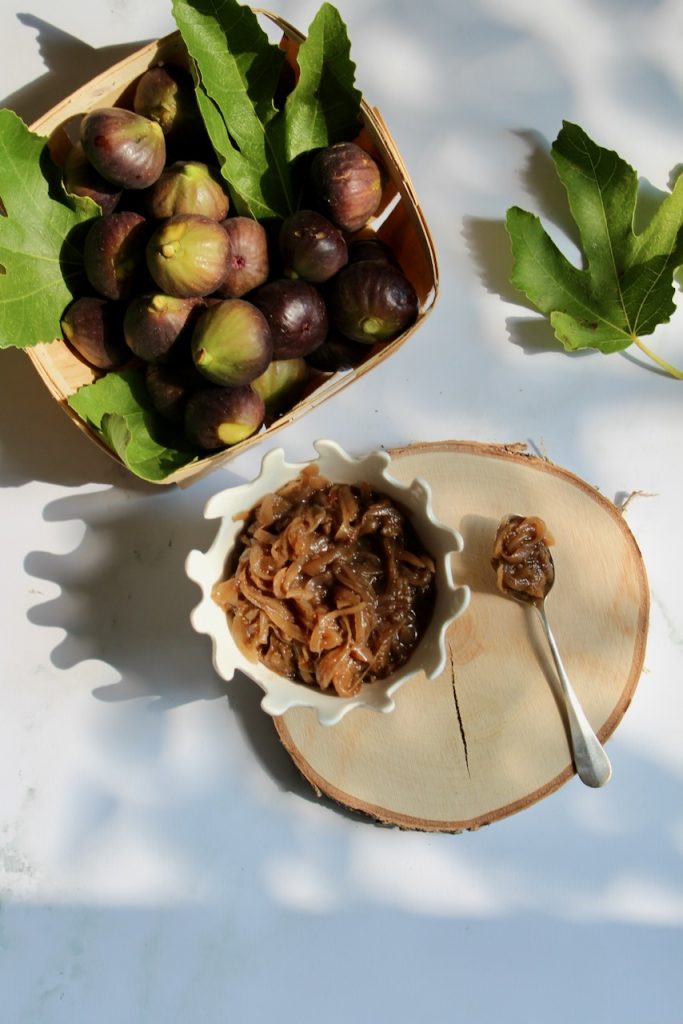
émincé (sliced) ⟹ émincer ; l’éminçage ✅ noun shows the process but doesn’t sound poetic
Émincé d’artichauts poêlés à l’ail

farci (stuffed) ⟹ farcir ; la farce ⚠ noun shows the result, not the process
Petits farcis niçois
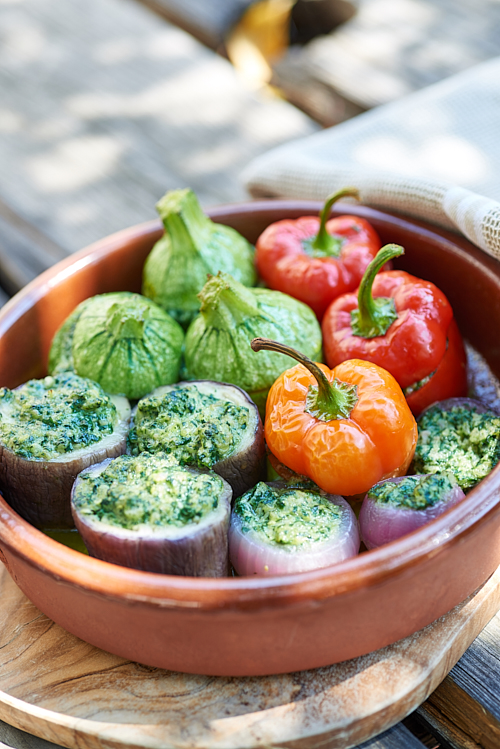
feuilleté (made with puff pastry) ⟹ feuilleter ; le feuilleté (noun and adjective have the same form)
Feuilletés express aux framboises
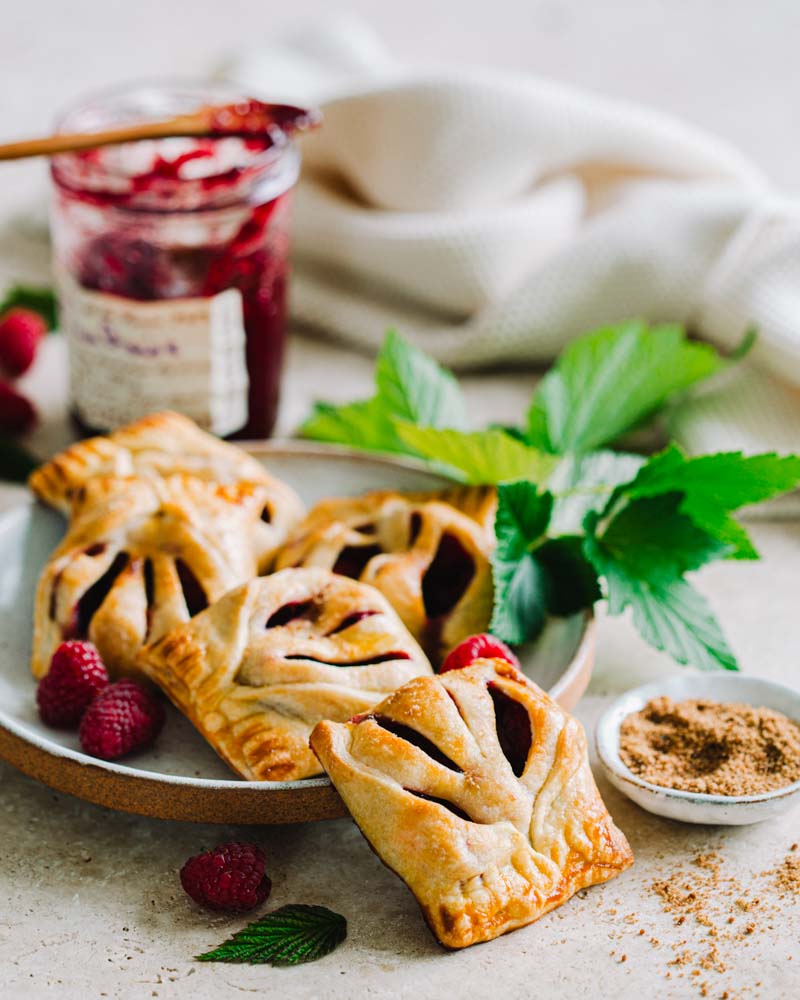
marbré (marbled) ⟹ marbrer ; la marbrure ⚠ noun is irrelevant: the meaning is not related to cooking
Marbré gourmand et croustillant

mijoté (simmered) ⟹ mijoter ; le mijotage ✅ noun shows the process but doesn’t sound poetic
Mijoté d’aubergines, poivrons et saucisses

mitonné (simmered) ⟹ mitonner ; la mitonnade ✅ noun shows the process but barely used
Mitonnée de légumes aux olives
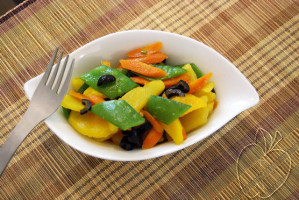
pressé (pressed) ⟹ presser ; le pressage ✅ noun shows the process but doesn’t sound poetic
Pressé de volaille et pickles de légumes
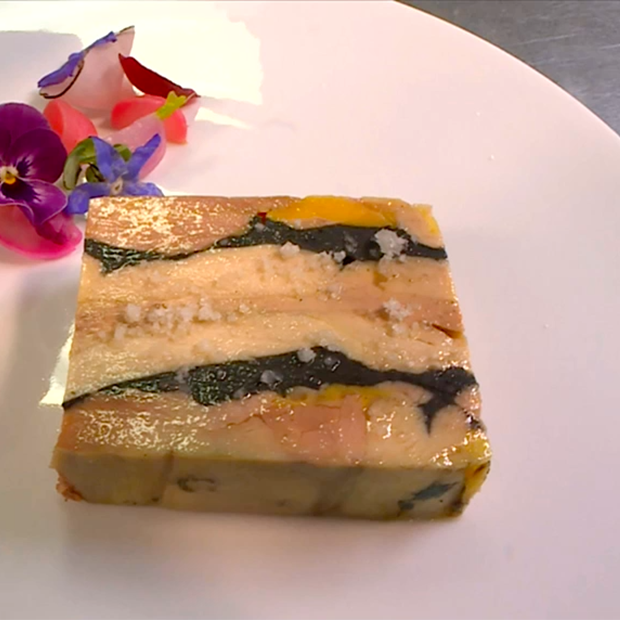
rôti (roasted) ⟹ rôtir ; le rôt ⚠ noun is relevant but it’s old French, never used!
Rôti d’agneau au romarin et ses légumes
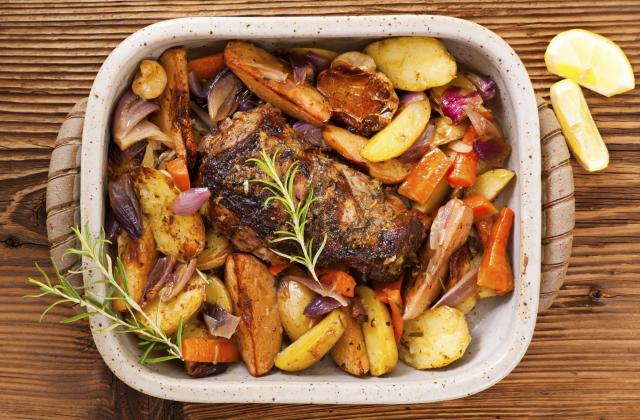
roulé (rolled) ⟹ rouler ; le roulé (noun and adjective have the same form)
Roulé à la fraise
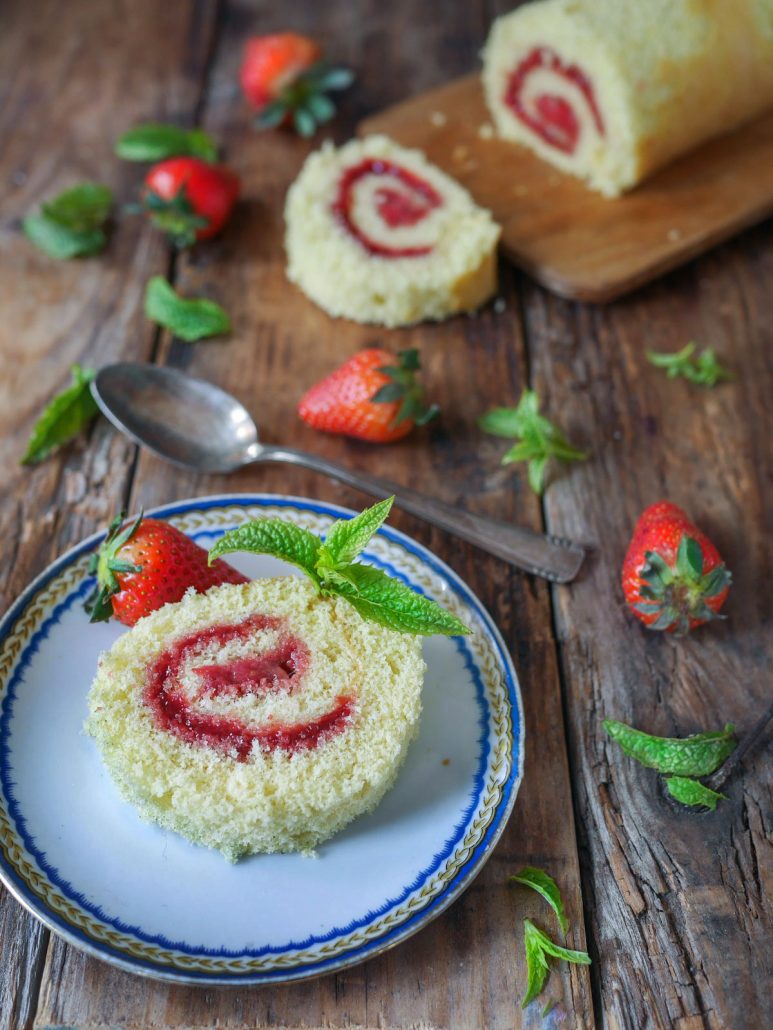
sablé (made with crumbly pastry) ⟹ sabler ; le sablage ⚠ verb and noun irrelevant here since it’s about pouring sand
Sablés maison à la vanille

sauté (pan-fried) ⟹ sauter ; le sauté (noun and adjective have the same form)
Sauté de veau aux légumes
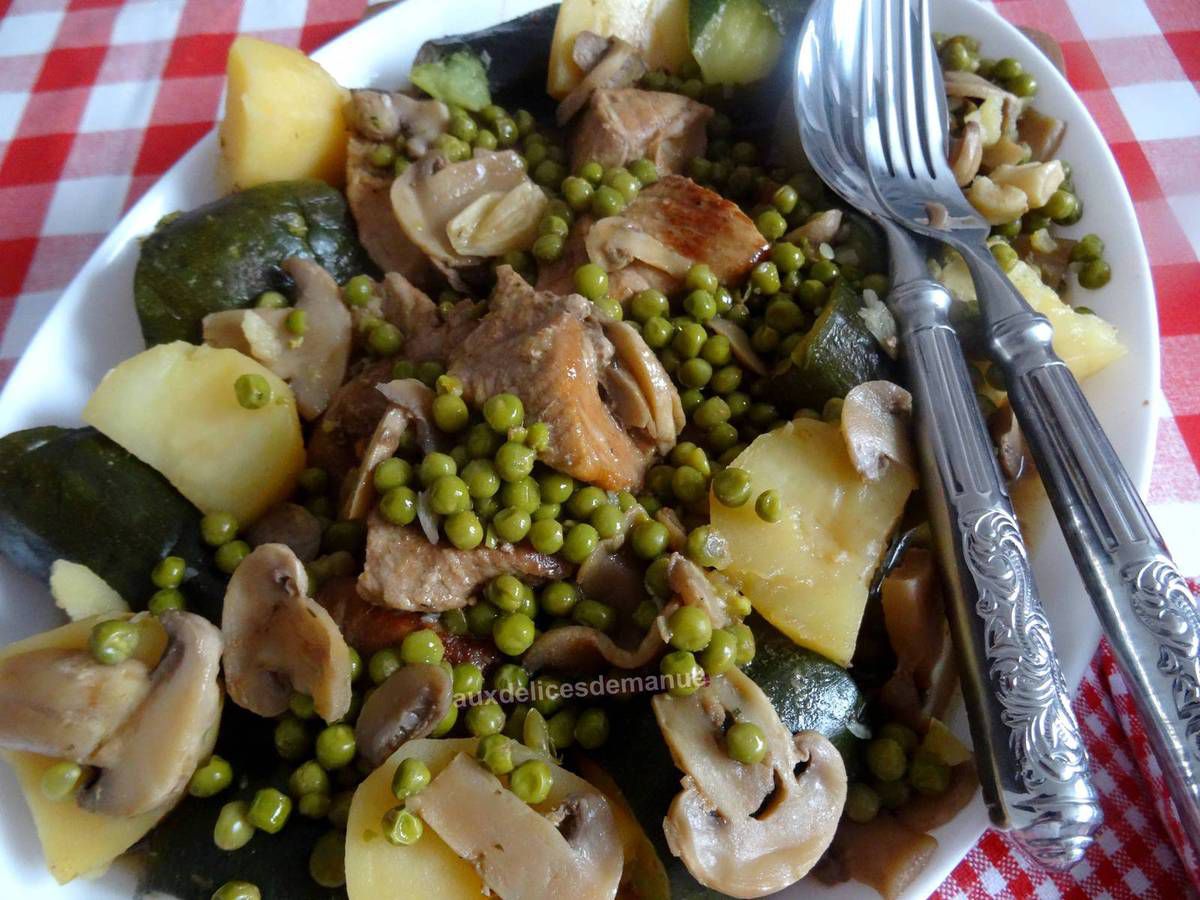
soufflé (made with egg whites you whip up) ⟹ souffler ; le soufflé (noun and adjective have the same form)
Soufflé au Comté
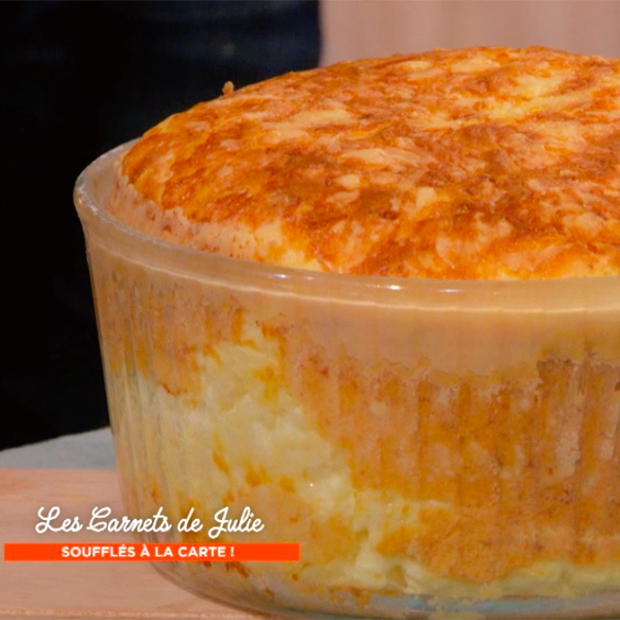
- Named after the perception you get from the dish (subjective perspective)
coulant (running because it’s semi-cooked) ⟹ couler ; la coulée / le coulis ⚠ nouns are irrelevant: only for liquids
Coulant au chocolat
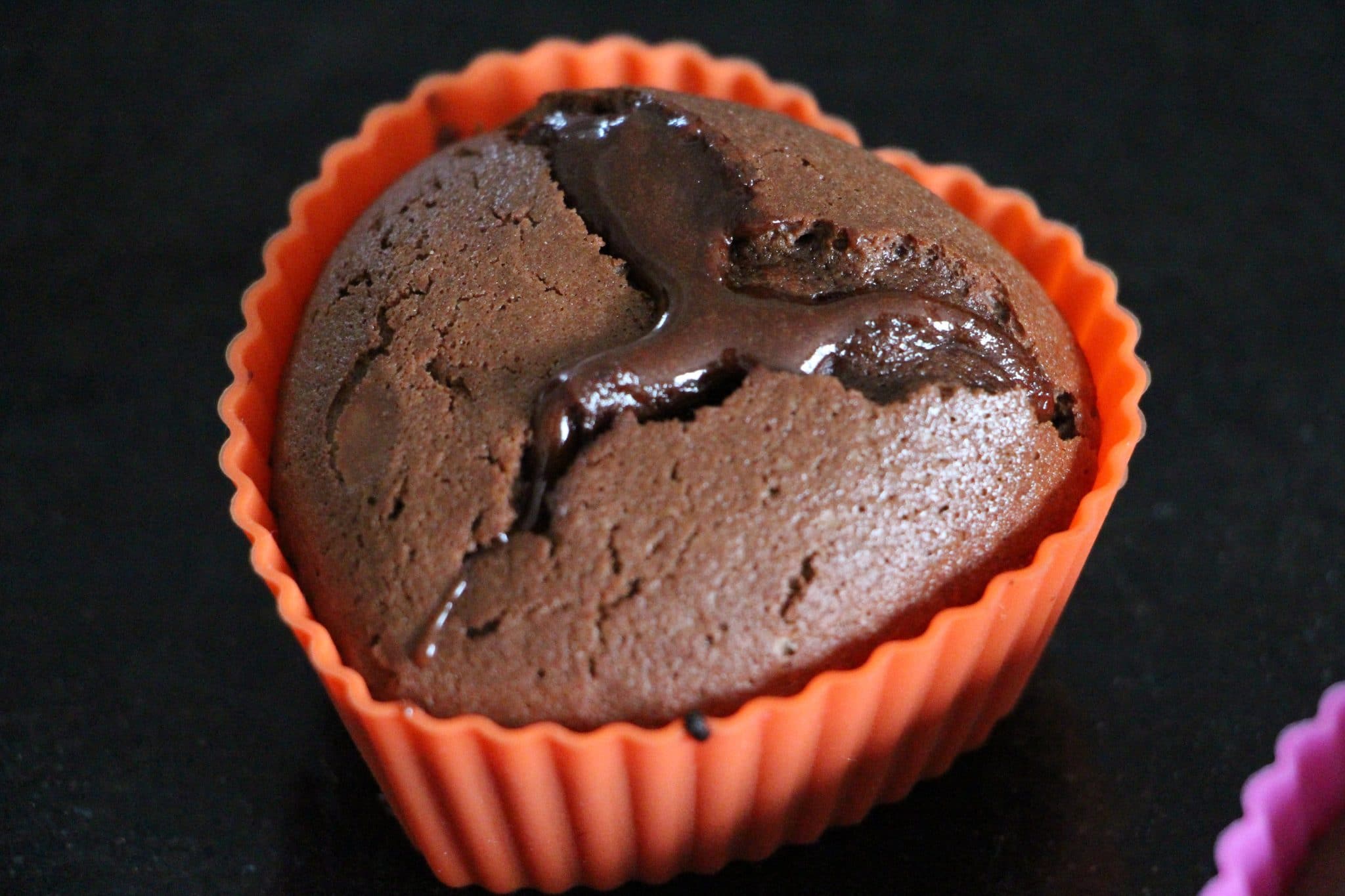
craquelé (cracker) ⟹ craqueler ; le craquelage ⚠ noun is irrelevant: it’s about a specific way to crack porcelain
Craquelés au citron vert

crémeux (creamy) ⟹ crémer* (add cream) ; le crémage ⚠ noun is used in Québec to mean “frosting”, which is “glaçage” in France
*barely used in France
Crémeux fruits de la passion
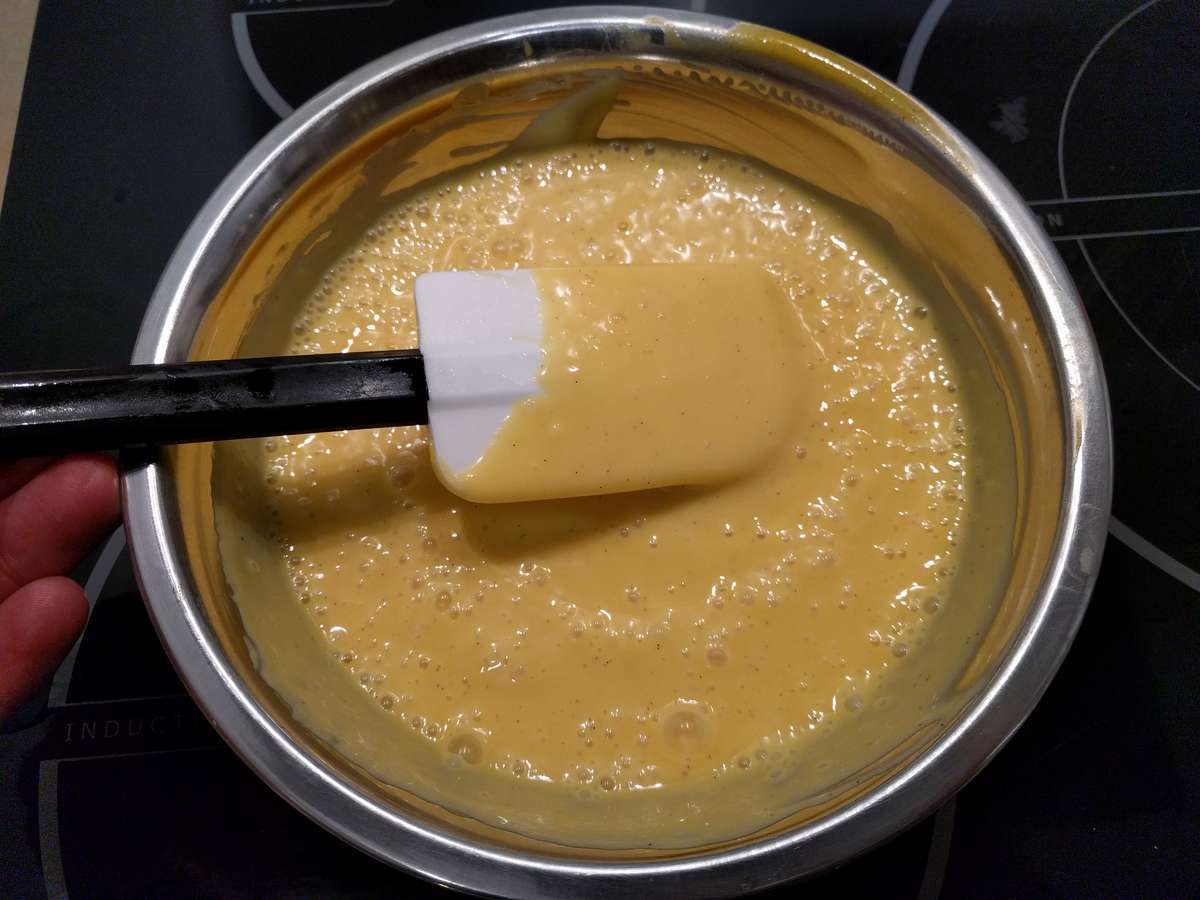
croquant / croustillant (crunchy) ⟹ croquer / croustiller (to crunch) ; ⊘ / ⊘
Croquant d’Auvergne

Croustillants aux fruits secs

moelleux (spongy) ⟹ ⊘ ; la moelle (marrow) ⚠ noun is irrelevant
Moelleux au chocolat

onctueux (creamy) ⟹ oindre* (oil something) ; l’onctuosité (creaminess) ✅ noun would be relevant but it sounds too long and complicated to pronounce for a dish
*barely used in France – irrelevant here anyway
Onctueux de chocolat, sablé et émulsion vanillée**
**Onctueux chocolat et son sablé breton à la mousse vanillée would sound better and more impressive on a menu

salé (salted) ⟹ saler (add salt) ; le sel (salt) ⚠ noun is irrelevant
Petit salé aux lentilles
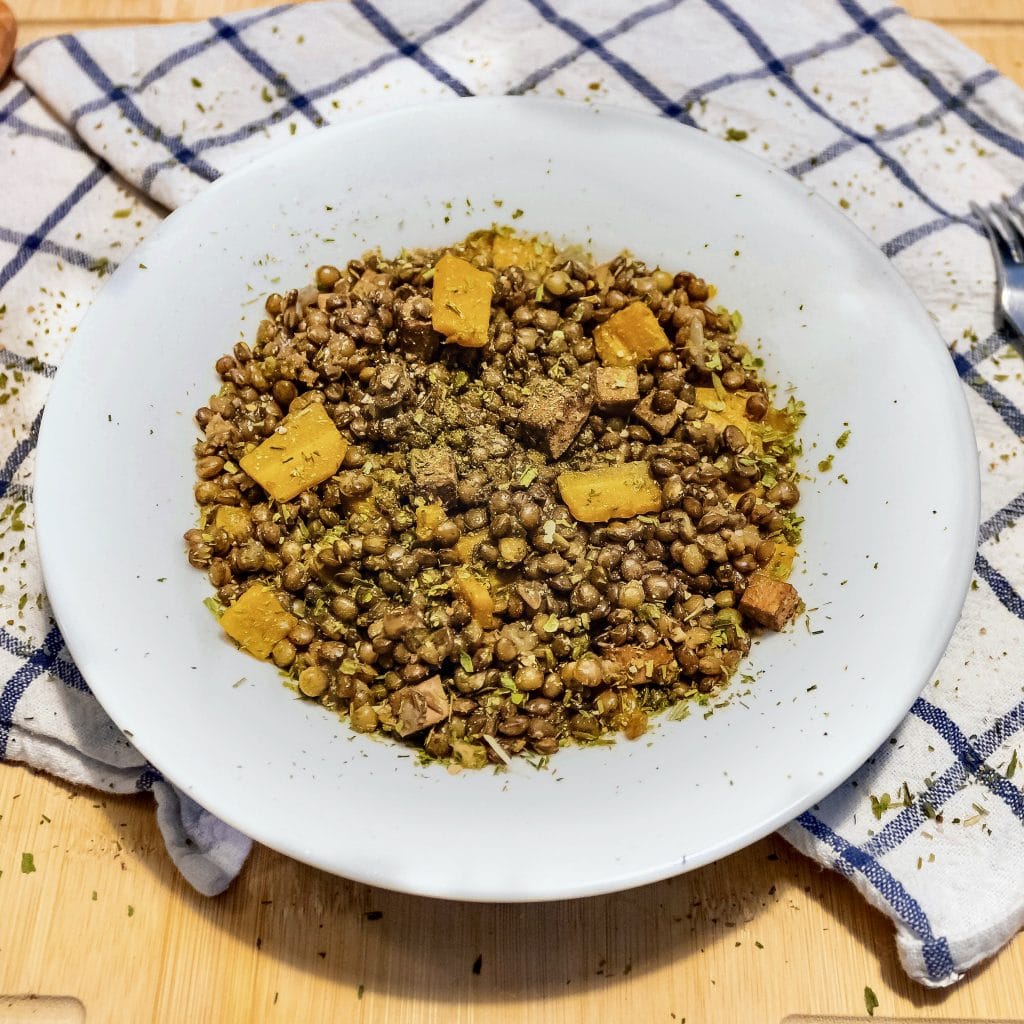
velouté (cream soup) ⟹ se velouter (poetic: to look like velvet) ; le velours ⚠ noun is irrelevant: the first thing that comes to mind is the fabric
Velouté de potiron, carotte et lait de coco
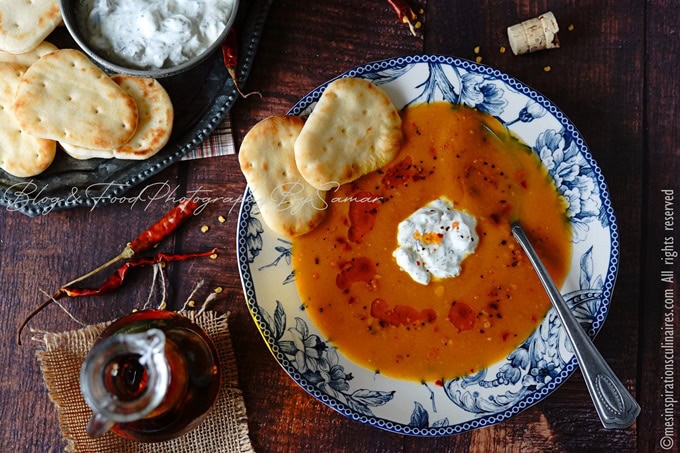
- Named after the perception of the dish as being the one and only (subjective perspective)
French people are veeeeery proud of their cuisine and it is true that practices, techniques, even the service had an impact on the development of gastronomy (learn more).
As a consequence, some of them might have no complex to rank French cuisine first amongst the others, stating that “it is the best in the world” (sic). They forget that the best cuisine ever, no matter who and where you are, is Mama’s cooking! ✌
Anyway, take a look at the adjectives below:
délicieux (delicious) ⟹ ⊘ ; le délice (delight) ✅ noun would be relevant and you do have recipes named with it
Délicieux aux poires

divin (divine) ⟹ ⊘ ; le divin (related to the deity)
Divin de Ladurée
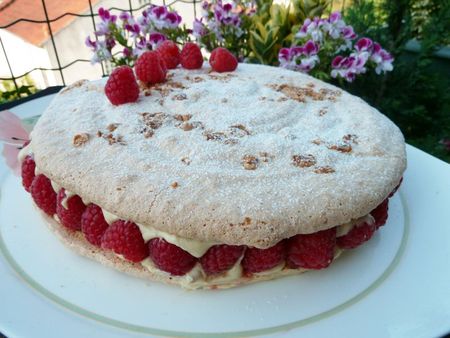
exquis (exquisite) ⟹ ⊘ ; l’exquis
Exquis aux trois chocolats

merveilleux (wonderful) ⟹ émerveiller (to enthrall) ; la merveille ✅ noun would be relevant and you do have recipes named with it
Merveilleux chocolat blanc

parfait (perfect) ⟹ parfaire (to improve) ; la perfection ✅ noun would be relevant but it definitely sounds too much so not used
Parfait glacé au café façon tiramisu

royal ⟹ ⊘ ; le royal ✅ noun used for that specific chocolate cake (and other specific meanings as well)
Royal chocolat framboises made by my friend Nadia but unfortunately not for me (but she did this one and this one for me ^^)
sublime ⟹ sublimer ; la sublimité*
*barely used
Sublime trois chocolats

suprême ⟹ ⊘ ; ⊘
Suprêmes de poulet et sauce à la Raclette

French language to serve French cuisine
Now that I have shown you that French people might have a real problem with exaggeration – and chocolate by the way! –, let me sum up this article in one sentence:
By using an adjective instead of a noun to name a dish, you don’t just give an opinion about a dish.
Your opinion BECOMES the information.
It becomes the DISH.
French culture is about a specific way of life – l’art de vivre à la française –. Imagine back in the days how people from high society and bourgeoisie would spend hours enjoying meals, prepared with so much care (and during hours) by chefs and their staff! It is not a surprise that the pleasure you get from eating is celebrated until now. Poetic or pompous, the names of dishes are here to help you expect / can’t wait for that pleasure.
Also, French cuisine, as part of France’s soft power, helps to influence and conquer. The language is a tool used to impress (intimidate?) you with powerful words… Hoping that it will help both for the supremacy of French cuisine, as a part of French people identity, and France’s ranking?
It’s your turn, give it a try!
The good thing about looking deeper into the language is that it helps you take some distance (and control!) on concepts.
Did you notice that even the man in the street names his dishes as he likes?
Indeed, anyone can use adjectives to create new names! For example, I can decide to prepare a Fondant au chocolat and re-name it Tombant au chocolat – meaning you will fall for it! – when I will put it on the table!
People would understand and smile but it’s also a good opportunity to play with the language and make it yours!
Here are some suggestions:
Grandiose ; Magistral ; Somptueux ; Superbe
If you are interested to know more about French cuisine’s history, check the video below from French national Musée de l’Homme
